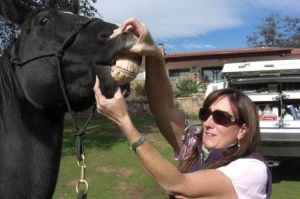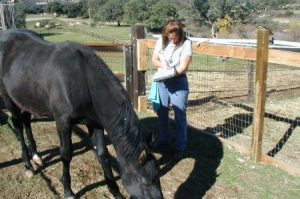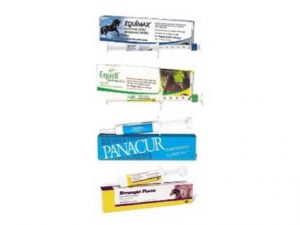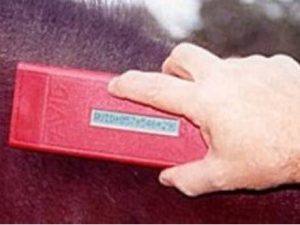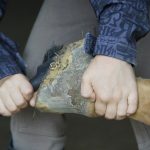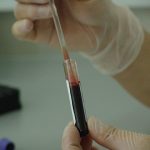
- If you see or hear snake when riding, move away from the area.
- If you think your horse has been bitten, move away from the area, dismount and examine the legs for blood, swelling or puncture marks.
- Slowly hand walk the horse back to the stable or trailer.
- Call our office at 619-659-1180
- Keep the horse calm.
If you find blood, puncture marks or swelling from a suspected snake bite, call our office at 619-659-1180 immediately.
If you are unsure whether your horse was bitten, clip the hair on the legs and examine for dark oozing blood, puncture holes (1 or 2), swelling or discoloration of the wound area.
If you find a snake bite after clipping away the hair, apply cold packs to the area. Do not apply ice directly to the skin, as this will freeze the skin and further damage the tissue.
You may be initially unable to determine if your horse has been bitten. Observe your horse’s legs or muzzle for 1-2 hours for signs of swelling, blood, or discoloration.
Medical treatment involves the use of antibiotics to prevent infection at the bite site and corticosteroids to reduce inflammation.
Call our office at 619-659-1180 if you have any questions concerning snake bites.



